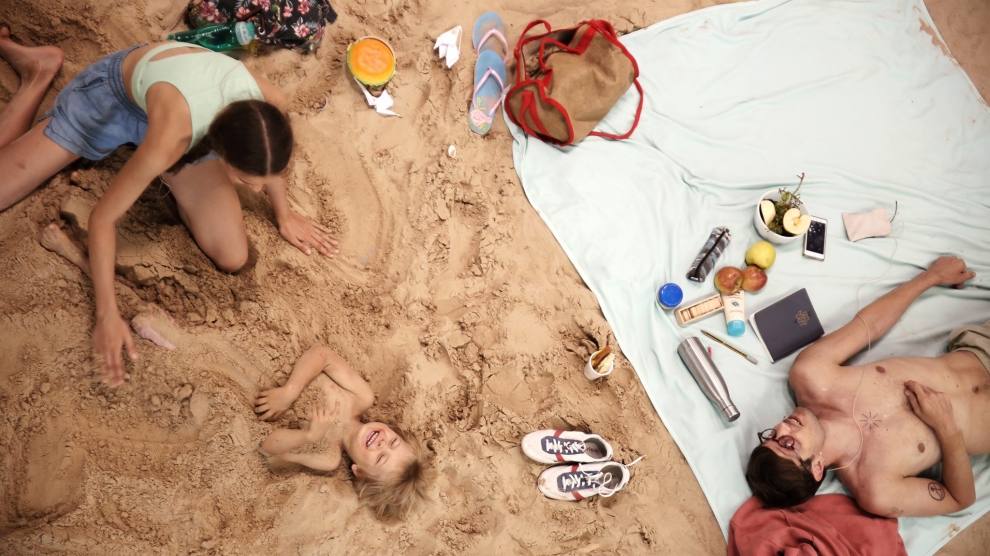Climate change is today undoubtedly the world’s main concern. And although it is easy to address this topic through words, essays and laws, it is a little bit more complicated when it comes to art. After all, how can art accurately reflect the impending global climate catastrophe?
Movies like The Day After Tomorrow, San Andreas or Geostorm can be scary. They were made in order to force us to think about what will happen if we keep acting the way we are. And maybe, for a few minutes, we really do think about our actions. But there is a huge difference between thoughts, words and deeds.
A Lithuanian opera-performance, Sun and Sea (Marina), currently at the Venice Biennale, doesn’t make people afraid, but is remarkably scary.
From a mezzanine, visitors can look onto a beach and all that comes with it: the burning sun, bright bathing suits, sweaty legs, the occasional squeal of children, laughter, the sound of an ice-cream van in the distance.
Then a chorus of songs: everyday songs, songs of worry and of boredom, songs of almost nothing. And below them: the slow creaking of an exhausted Earth, a gasp.
Sun and Sea (Marina) was put together by director and filmmaker Rugilė Barzdžiukaitė, writer Vaiva Grainytė and artist and composer Lina Lapelytė. It brings a varying cast of more than 20 participants and singers together for an installation/performance blurring the edges between fiction and reality and addressing some of the most pressing issues of our time.
“It is a work that the artists themselves call an opera-performance, that takes place in an indoor, artificially-lit sandy beach that mimics a very busy beach at noon,” said curator Lucia Pietroiusti. “The audience listen to the singers, discovering their personalities and their stories through their songs, which are songs about everyday worries, with a thin veil of anxiety around climate change. For example, you might hear a song about jellyfish and plastic bags dancing together. It is a different way to see what we think about ecology and what we think about ourselves in relation to the planet.”
An ecological play at its very core, Sun and Sea (Marina) won the Venice Biennale’s main award, the Golden Lion. It concerns itself with the way in which we, our human species, consistently fail to recognise those planetary-scale threats and urgencies we ourselves are the cumulative cause of.
“The way that I would think of it is to what extent are we cognitively capable of conceiving of things as wide and distributed as climate change, or global environmental crisis, or species extinction, and how does that permeates our experience of everyday life,” continued Mrs Pietroiusti.
To me, a work like Sun and Sea (Marina) is scarier than any disaster movie full of special effects. While I can’t imagine myself running from a tsunami, I have been at the beach many times. The lack of spectacular events makes the opera more real, more normal. People are acting like nothing will ever change, thus making us accomplices of the Earth’s murder.
—
Photo: Sun and Sea (Marina) official Facebook page






Add Comment